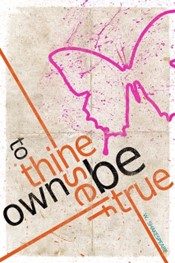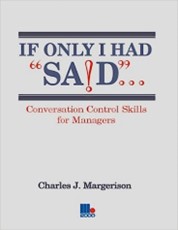By Dr Charles Margerison
Psychologist
The World Literary Summit held in Oxford in April 2023 indicated an increasing international need to help students to develop their ability to read, write and comprehend.
Therefore, I would like to share some ways to help students to write, based on my personal experience.
This short article explains an approach that has helped me and could also help students. After all, I did not find it easy to write when I was at school. I found formal essay writing to be a struggle. I left school at the age of 16 with few qualifications.
I gained a clerical job in social services. As the junior member of the team, I was at the front desk to meet people who came to the office seeking help. Each day, people in need turned up – such as the disabled, the homeless and the elderly sought support. My job was to find what their needs were, and to pass on the information about their situation and requirements to my senior colleagues.

This involved writing notes on the issues that people raised. I summarized the key points and put them in a file for my senior colleagues. Those notes had to be succinct, factual and clear. To do that, I wrote short sentences, so called one-liners. As a result, my writing ability improved.
My colleagues suggested that I attend the local technical college to gain some qualifications. While studying, I used the short sentence approach when writing assignments. To my surprise, I passed the examinations. Within a short time, I gained entry to the University of the London School of Economics.
Over the next three years, I had to write many essays. That helped me to develop my writing skills. In particular, I again used the one-line sentence approach. It certainly helped me write with clarity, and I went on to gain a degree.
I returned to the world of paid work as a researcher. Writing in a clear fashion was a requirement of the job. Next, I gained a role as a university teacher, and had to mark papers submitted by students. Based on what I had learned, I advised them to use short sentences.
My next major role was in a publishing company. I became the editor of journals that focussed on psychology, education and career development. Again, I valued those who expressed their ideas in clear and easy to read sentences.
Therefore, I developed the confidence to write books. I used the one-line sentence method, and people complimented me. They said my books were easy to read.
I was fascinated by the life stories of some of the world’s most amazing people. Could I use this one-line approach to write about amazing achievers? Why not write virtual interviews with people from times past who made major contributions to our world?
To do so, I imagined that people like Shakespeare, Marie Curie, Mozart, Nelson Mandela, Helen Keller had travelled through time, so that I could interview them.
As a result, I created ‘Bioviews.’ – short for ‘biographical interviews’. Central to each one, is the system which I call ‘one-line writing’.

 In the process, I noted that Shakespeare was a master of one-line writing.
In the process, I noted that Shakespeare was a master of one-line writing.
‘I wasted time, and now time doth waste me.’
‘Ambition should be made of sterner stuff.’
These lines invite another line by asking ‘why’ or ‘how’?
I became interested in music. As a result, I noticed that songwriters revelled in one-line writing. Bob Dylan encouraged a new generation to think differently with his lyric –
‘For the times they are a changin’.
I used the one-line method in my own lyrics. In the song, ‘Your’re Pure Gold’, I wrote – ‘There is peace in the air whenever you are near and I hear you whisper my name.’
Poets are renowned for capturing important meanings in one line. William Wordsworth wrote –
‘I wandered lonely as a cloud’.
Rudyard Kipling was a master of one-line writing, for example –
‘If you can dream, but not make dreams your master’.
Therefore, I developed the confidence to write books. I used the one-line method and people complimented me. They said my books were easy to read.

In my book, ‘If Only I Had Said’, I outlined the ways and means people could communicate using key ideas, such as ‘general’ and ‘specific’ thinking. It is available on Amazon here.
Young people can improve their written communication by developing their one-line writing skills.
This can be done if they choose a subject of interest. It could be sport, music, travel, or any topic they wish to write about. The following are some guidelines:-
To start with, the following words should be considered –

Then, begin at one of three points –
Use sentences that include –
Use both general and specific points to –
Where relevant, outline both –

These action words are all reference points that will help young people to develop their one-line short sentence writing skills. With regular, practise they will become skilled communicators.
It is particularly important to focus on the skill of summarizing. That is how I started to improve my writing when I worked in the social services office.
Listening to the main points in a discussion and writing them into short sentences is a valuable skill. It is particularly valuable to capture the main ideas from business meetings in clear concise ways.
One-line writing is a key to effective communication. It is a major skill that can be used throughout one’s life.

Dr Charles Margerison, President and founder of Amazing People Worldwide, is a Psychologist. He is also President of Amazing People Schools. Dr Margerison has consulted widely for major organizations in the fields of organizational and educational psychology. He was previously Professor of Management at Cranfield University, UK, and the University of Queensland, Australia. He founded Amazing People Worldwide in 2006 and is supported by a dedicated global team. He previously co-founded Emerald Publications, and Team Management Systems and has authored more than 30 books. Dr Charles is also the creator of ‘Can Do Kids Worldwide, a virtual music group that helps students to learn about countries and cultures through music. He has also developed Imagineland, for early learners. You can follow him on Linked in .
For more information, please email info@amazingpeopleworldwide.com
Websites:



Copyright © 2021. Amazing People Worldwide.
All Rights Reserved.
This site is protected by reCAPTCHA and the Google
Privacy Policy and Terms of Service apply.



